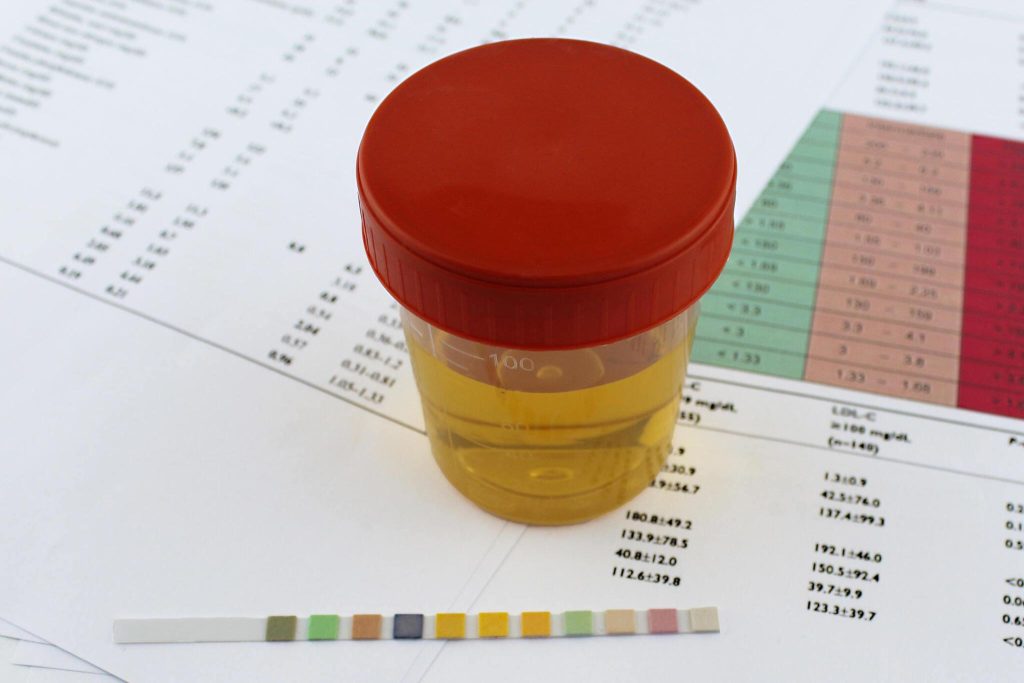Recently, there has been a growing trend of people trying to bypass drug tests. Synthetic urine has become a popular method. But does it truly work? Let’s look into the details of synthetic urine. We’ll see how well it works for urine drug screening.
Understanding Synthetic Urine:
Synthetic urine, also called fake urine, is a lab-made substance. It’s meant to mimic the look, makeup, and chemicals of real human urine. It’s primarily used as a control tool in laboratories for various experiments. Synthetic urine is alluring because it closely resembles real urine. This makes it a tempting option for those trying to deceive drug tests.
Also Read: How Sensitive Are Urine Drug Screens?
Advancements in Drug Testing Technology
- Testing centers have embraced sophisticated techniques. They use them to stay ahead of adulteration.
- Identifying Substances: Labs can now find substances in real urine. These substances are missing in fake urine.
- Synthetic urine lacks uric acid, a key part of human urine. Its absence triggers suspicion in analysis.
- Discrepancies raise red flags. For example, the absence of uric acid. These signs prompt further investigation by lab experts.
Detection Measures:
Labs have tools to detect synthetic urine in drug tests. They have advanced protocols. These measures include assessing the composition, pH, and specific gravity of urine. They also look at its other traits. They use this information to tell real from fake samples. Additionally, temperature inconsistencies and visual inspections play crucial roles in identifying synthetic urine.
Also Read:Do Urine Drug Screens Test for Alcohol?
Legal Implications:
Using synthetic urine to cheat on drug tests raises ethical and legal concerns. Using synthetic urine is not illegal. But, using it to deceive can have serious consequences. In some places, laws regulate the sale and use of synthetic urine. They impose penalties on those caught trying to deceive drug tests.
Consequences of Cheating:
Attempting to cheat on drug tests with synthetic urine can have dire consequences. They may face disciplinary actions. They may be fired and face legal penalties. They could even be jailed. The outcome depends on the circumstances and jurisdiction. Also, lying can harm the treatment and reputation of healthcare professionals and patients.
Also Read: How Does Urine Drug Screening Work?
Tips for Employers:
Employers and testing agencies can use many strategies to deter cheating. They can use them during drug screening. These may include pictures to confirm sample collection. They must also show strict testing protocols and investment in advanced testing tech. Employers can keep drug tests credible by being watchful and honest in screening.
Conclusion:
Synthetic urine may have appeared as a convenient workaround for drug tests in the past, but advancements in testing methodologies have rendered it less effective. Laboratories, such as DeptFord Medical Center, now employ thorough analysis and detection techniques to identify fake urine accurately. Additionally, the consequences of attempting to cheat on drug tests far outweigh any perceived benefits. It is crucial for individuals to recognize the risks associated with using synthetic urine and adhere to ethical and legal standards in drug screening practices.
Frequently Asked Questions:
Can synthetic urine pass drug tests undetected?
Synthetic urine may evade detection at first. But, better tests can spot its lack of some parts. This leads to rejection of the sample.
Are there legal consequences for using synthetic urine?
Yes, using fake urine to trick drug tests can lead to penalties. The penalties can include fines and possible imprisonment. The severity depends on local laws and circumstances.
How can laboratories detect synthetic urine?
Laboratories use advanced analysis to test urine’s composition, pH, and other traits. This lets them tell real from fake samples.
Can visual inspections reveal synthetic urine?
Yes, looking at things can help find suspicious samples. For example, ones with inconsistent temperatures or abnormal looks. This prompts technicians to look at them more closely.
What are the risks of cheating on drug tests?
Cheating on drug tests can lead to severe consequences. These include losing your job, legal penalties, and harm to your reputation and career.
How can employers prevent cheating during drug screening?
Employers can take steps to stop cheating. They can use visual confirmations of sample collection and follow strict testing protocols. They can also invest in advanced testing technologies.
Are there alternative methods for drug screening?
Yes, other methods like hair, saliva, and blood tests offer more ways to screen for drugs. Each has its own pros and cons.Those caught trying to cheat on drug tests should admit their actions. They should work with authorities and seek legal advice. They need to understand their rights and the possible consequences.

